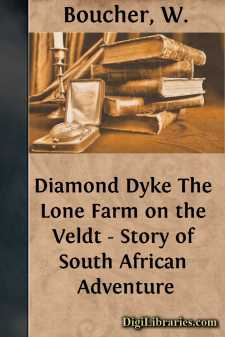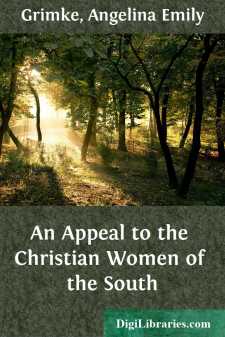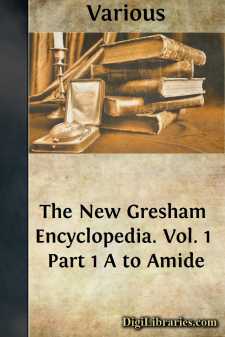Categories
- Antiques & Collectibles 13
- Architecture 36
- Art 48
- Bibles 22
- Biography & Autobiography 813
- Body, Mind & Spirit 142
- Business & Economics 28
- Children's Books 17
- Children's Fiction 14
- Computers 4
- Cooking 94
- Crafts & Hobbies 4
- Drama 346
- Education 46
- Family & Relationships 57
- Fiction 11829
- Games 19
- Gardening 17
- Health & Fitness 34
- History 1377
- House & Home 1
- Humor 147
- Juvenile Fiction 1873
- Juvenile Nonfiction 202
- Language Arts & Disciplines 88
- Law 16
- Literary Collections 686
- Literary Criticism 179
- Mathematics 13
- Medical 41
- Music 40
- Nature 179
- Non-Classifiable 1768
- Performing Arts 7
- Periodicals 1453
- Philosophy 64
- Photography 2
- Poetry 896
- Political Science 203
- Psychology 42
- Reference 154
- Religion 513
- Science 126
- Self-Help 84
- Social Science 81
- Sports & Recreation 34
- Study Aids 3
- Technology & Engineering 59
- Transportation 23
- Travel 463
- True Crime 29
Sort by:
by:
Various
ROBERT AT THE ACADEMY. I paid my reglar wisit to the Academy last week, and was glad to find that my werry ernest remonstrance of last year had perduced sech a change as regards Staggerers. No Miss Menads a hunting in Burnham Beeches without no close on to speak of, and no Mr. Cassandra a carrying off of a pore yung lady afore she's had time to dress, merely because she upset the salad-bowl. I...
more...
by:
W. Boucher
Query Bad Shillings? “Hi!” No answer. “Hi! Dyke!” The lad addressed did not turn his head, but walked straight on, with the dwarf karroo bushes crackling and snapping under his feet, while at each call he gave an angry kick out, sending the dry red sand flying. He was making for the kopje or head of bald granite which rose high out of the level plain—where, save in patches, there was hardly a...
more...
by:
Hi Marx
The red-headed secretary asked, "Names, please?" "Ted Baker." "Bill Stephens." "To see H. Joshua Blair. We have an appointment." "It's for three-thirty. We called up two weeks ago." The secretary said, "Oh, yes. I have you on the list." She checked them off, studied them vaguely, asked, "What was it you wanted to see Mr. Blair about?" Ted...
more...
Respected Friends, It is because I feel a deep and tender interest in your present and eternal welfare that I am willing thus publicly to address you. Some of you have loved me as a relative, and some have felt bound to me in Christian sympathy, and Gospel fellowship; and even when compelled by a strong sense of duty, to break those outward bonds of union which bound us together as members of the same...
more...
by:
Myra Kelly
"EVERY GOOSE A SWAN" An ideal is like a golden pheasant. As soon as the hunter comes up with one he kills it in more or less bloody fashion, tears its feathers off, absorbs what he can of it, and then sets out, refreshed, in pursuit of another. Or if, being a tender-hearted hunter, he tries to keep it in a cage to tame it, to teach it, to show it to his friends, it very soon loses its original...
more...
by:
Edward Eggleston
PREFACE. [IN THE POTENTIAL MOOD.] It is the pretty unanimous conclusion of book-writers that prefaces are most unnecessary and useless prependages, since nobody reads them. And it is the pretty unanimous practice of book-writers to continue to write them with such pains and elaborateness as would indicate a belief that the success of a book depends upon the favorable prejudice begotten of u graceful...
more...
by:
Various
THE MYSTERY OF MR. E. DROOD, AN ADAPTATION. BY ORPHEUS C. KERR CHAPTER XXVI. FOR BETTER, FOR WORSE. Miss CARROWTHERS having gone out with Mrs. SKAMMERHORN to skirmish with the world of dry-goods clerks for one of those alarming sacrifices in feminine apparel which woman unselfishly, yet never needlessly, is always making, FLORA sat alone in her new home, working the latest beaded pin-cushion of her...
more...
by:
Various
A, the first letter in many alphabets. The sound most commonly belonging to it, as in French, Italian, German, &c., is that which is heard in father, pronounced short or long. In English the letter is made to represent at least seven sounds, as in father, mat, mate, mare, many, ball, what, besides being used in such digraphs as ea in heat, oa in boat.—A, in music, is the sixth note in the...
more...
CHAPTER I Felix Brand Has a Mysterious Experience Felix Brand awoke with a start and looked about him with a puzzled stare. And yet there was nothing unfamiliar in what met his gaze. The bed wherein he lay and its luxurious appointments were of his own recent buying. He had himself designed the decorations of the room and selected its furnishings. As his eyes leaped from one object to another his...
more...
by:
J. Arthur Gibbs
CHAPTER I. FLYING WESTWARDS. London is becoming miserably hot and dusty; everybody who can get away is rushing off, north, south, east, and west, some to the seaside, others to pleasant country houses. Who will fly with me westwards to the land of golden sunshine and silvery trout streams, the land of breezy uplands and valleys nestling under limestone hills, where the scream of the railway whistle is...
more...











